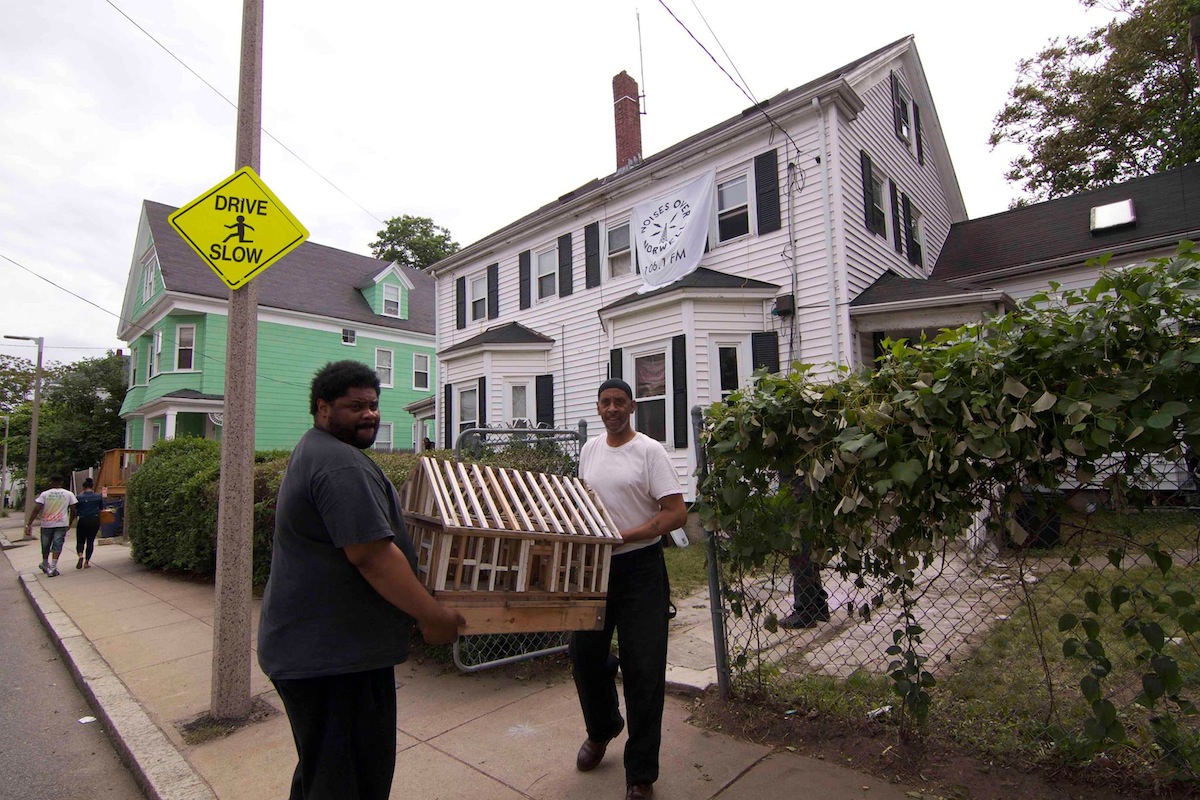Police Clear Out Foreclosed Home Occupied By Protesters

Image via City Life/Vida Urbana
Boston Police swiftly cleared out furniture and other living amenities from a foreclosed Dorchester home this week, owned by Fannie Mae, after two people occupied it as part of a protest to rising housing costs, predatory loans, and evictions citywide.
“Boston Police and a lawyer from the real estate company managing the property basically emptied out the home and supervised the move out,” said Mike Leyba, an organizer from City Life/Vida Urbana, one of the local activist groups that helped a couple take over the vacant property last weekend. “We urged the BPD to reach out and tell Fannie Mae that [the couple] would be willing to pay any reasonable rent to stay in the property, but instead they spent hours overseeing the move out. We are taking a stance that it’s a waste of public resources, and our taxpayer dollars shouldn’t go toward keeping vacant houses from being occupied by people who need affordable housing.”
On June 9, police responded to 193 Norwell St., where two days prior activists from City Life/Vida Urbana helped Paul and Renée Adamson move into the house, which had been sitting empty in the Dorchester neighborhood since February, when the previous tenants were forced out.
When police arrived at the scene, they spoke with a representative from Bronsnan Realty Company, the agency handling the home sale on behalf of Fannie Mae, who told them the Adamsons had forcefully entered the property to move into the residence during the “peaceful protest” earlier in the week.
When police spoke with the Adamsons and organizers from City Life/Vida Urbana before monitoring the removal of their goods, protesters admitted to breaking into the home to continue the protest they had recently launched. Once police realized the Adamsons didn’t own the house, they ordered the move out, and the realty agency told officers they would board up the property and change the locks to prevent reentry.
Darnell Johnson, coordinator from the Right to the City group, said this type of action sends a clear message that lending companies and big banks don’t have the best interest in people’s lives in mind. “This company spent hours evicting someone from their home—if they spent the same amount of time trying to fund solutions to the affordable housing crisis, we wouldn’t have this problem to begin with,” he said.
Johnson returned to the site of the Norwell Street property a day after the Adamsons were evicted, along with several other local non-profit groups, to protest Fannie Mae’s move to kick out the couple. “Here in Dorchester we have an example of a foreclosed home, and we presented them with a solution, they were willing to pay a reasonable rent to stay in the home,” he said. “We had a community solution of pulling it off the market and putting it back into the hands of the community, and it was denied.”
Johnson and Leyba said there were no immediate plans to reoccupy the home, but said they will continue spreading the message that residents deserve affordable, accessible housing, and should not be forced to live on the streets when there is a clear solution in mind.


